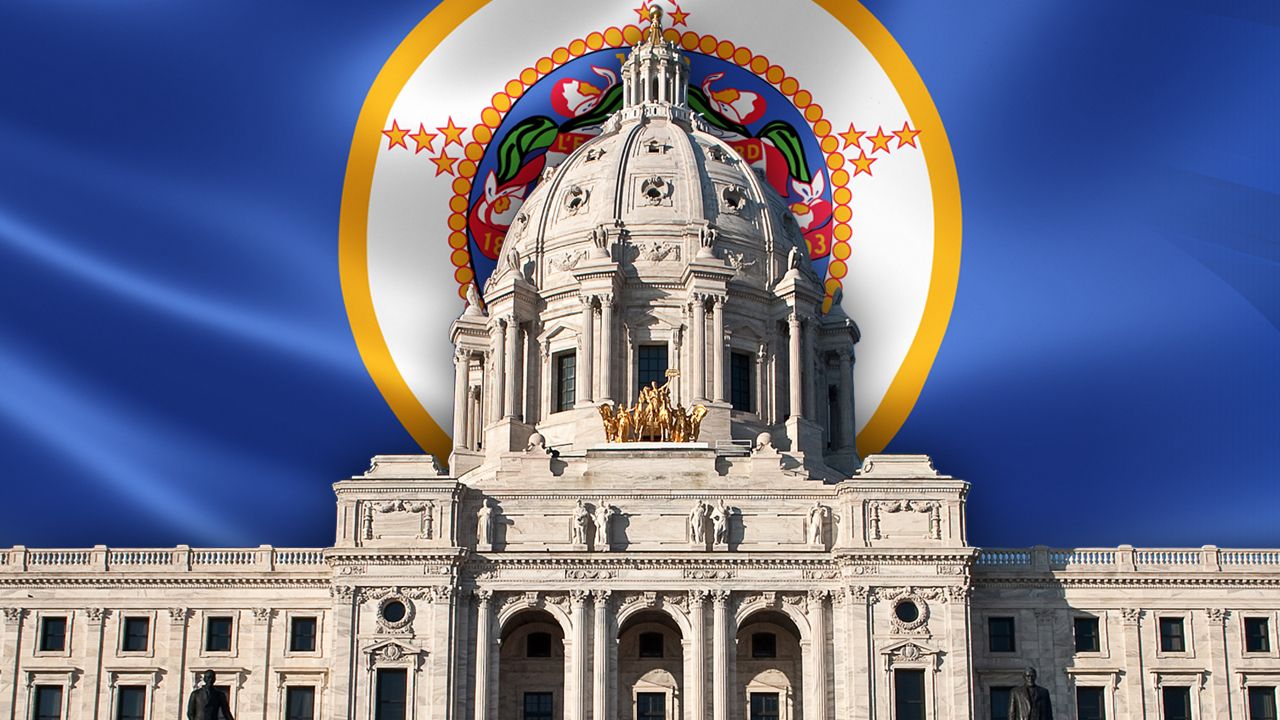Capitol Wrap: Gov. Walz’s revised budget proposal, free school lunches and more

KSTP-TV
It was another busy week at the Minnesota Capitol.
For a quick roundup of the latest developments at the legislature, here is this week’s Capitol Wrap.
- A bill to guarantee free breakfast and lunch for all Minnesota students will soon be headed to the governor.
Tuesday, a month after it was approved by the Minnesota House, the Minnesota Senate gave final approval to the bill. Before it heads to Gov. Tim Walz, the House has to approve conformity changes made by the Senate. However, that is expected to happen swiftly, and Walz is then expected to sign the legislation into law.
While free and reduced-price lunch programs exist, many Minnesota families who experience food insecurity currently don’t qualify.
Supporters say the bill will benefit all families by fighting student hunger. Opponents say the program costs too much — around $388 million over the fiscal 2024 and 2025 years.
- State lawmakers weren’t talking about improving their relationships, but they were discussing bonding this week.
A week after the Minnesota House passed two infrastructure bills, Senate Republicans rejected the $1.5 billion bonding bill proposal. The package is split between a $1.5 billion bonding bill and a $393 million cash bill.
The legislation failed to get the three-fifths majority needed to pass the Senate Thursday. As of Friday morning, the $1.5 billion bonding bill proposal was stalled in the Senate.
While the bonding package is smaller than Gov. Walz’s proposal ($3.3 billion), the bills have been a priority for DFL lawmakers after the legislature failed to pass a bonding bill last year. However, Republican lawmakers have said it’s too early in the session to focus on bonding and have tried to hold up the package until they tie in some permanent tax cuts.
Because the DFL holds a slim majority in both chambers, the party can push through most of its legislation without any Republican support. Since the bonding bills require a 60% majority, Republicans have some rare leverage on the topic. DFL leaders have said they’d pass a smaller all-cash bill if Republicans don’t cooperate, as an all-cash bill requires only a simple majority vote.
- Gov. Walz presented his revised budget proposal Thursday.
It comes two months after the governor announced his full, initial proposal, which called for a reduction — but not complete elimination — in taxes on Social Security income, direct checks to taxpayers, and increased funding to programs helping to pay for local infrastructure projects that typically rely on property taxes.
His revised proposal features increases in public safety funding, a new proposal for Local Government Aid, and funding to help address the opioid crisis, among other items.
- Minnesota’s Native American tribes addressed state lawmakers and shared more about their history and culture during special events this week.
Monday was Sovereignty Day at the Minnesota Capitol, which included several events on various topics aimed at educating lawmakers about Native American history and building on the relationship between the sovereign tribal nations and state leaders.
The Minnesota House first held the event back in 2019.
A tribal council member said the day is important because each tribe faces its own issues, and native issues can be easily forgotten by the government and its leaders.
- Legislation to ban the use of no-knock warrants — with a few exceptions — moved forward at the Capitol this week.
The push for the ban comes after the killing of Amir Locke in February 2022. Locke was fatally shot by Minneapolis police while they served a no-knock warrant at an apartment where Locke was staying.
This week, Locke’s father, Andre, testified on behalf of the bill, which cleared the House Public Safety Committee but still has a long journey ahead.
Supporters of the legislation say no-knock warrants aren’t safe for civilians or police officers, and a ban would make interactions with police safer. Opponents say judges and law enforcement can only authorize no-knock warrants with appropriate evidence, so there’s no need for a ban, which they say is more in response to headlines than a need for change.
Thursday, Gov. Walz signed several bills into law, including a bill that cracks down on catalytic converter theft, legislation with protections for Native American children and families, and $250,000 in funding for the Competency Attainment Board.
Several other bills — including legislation to modify treatment requirements for police officers and firefighters experiencing mental health problems, a bill to legalize recreational marijuana, one to guarantee sick and safe time for all Minnesota workers, and legislation to legalize sports betting — all had committee hearings this week and continue to progress through the legislature. Additionally, the House Tax Committee heard two bills regarding Social Security income taxes and laid both over for possible inclusion in an omnibus bill.
Follow those and several other hot-button bills throughout the session on KSTP’s Legislative Tracker.
Click here to read last week’s Capitol Wrap.